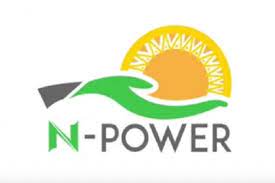At inception, N-Power scheme stood out as one of the best policies of the President Mohammadu Buhari administration to address the hydra-headed poverty in Nigeria because of its promise to ensure that none of its volunteers (participants) return to the street empty handed. Unfortunately, this seems to have turned to “a motion without movement” given the sudden suspension of the programme and the disengagement of the participants without any exit package.
On 7th October, 2023, the Minister of Humanitarian Affairs and Poverty Alleviation, Betta Edu, announced an indefinite suspension of the N-power programme with a promise to investigate the utilisation of funds disbursed since the inception of the scheme.
N-Power is a subset of the National Social Investment Programme (NSIP) launched in 2016 as part of the efforts of the federal government to reduce the level of poverty in Nigeria. It started with the enrollment of 200,000 participants in Batch A, 2016; 300,000 participants in Batch B, 2017; and 510,000 in Batch C1; and 490,000 in Batch C2 in 2021.
Though, the stipend attached to the programme is not attractive but some people applied in order to further contribute to the development of the country and escape the “sit at home syndrome” occasioned by the oversaturated labour market in an anticipation to transit to permanent job pool promised by Buhari while campaigning in 2015.
This hope was further raised by the promises by the then Vice President Yemi Osibanjo that government will not allow the N-Power volunteers to go back to the streets empty handed.
However, this hope was dashed in 2020 when they were disengaged from the programme without any exit package at a time other countries were giving palliatives to their people due to the hardship occasioned by COVID-19 pandemic.
This seems to be repeating itself with the indefinite suspension of the programme at a time prices of goods and services have ascended 150% increase. Recently, the World Bank said over 7 million people are likely to join those living below poverty line in Nigeria if palliatives are not given to mitigate the hardship caused by the removal of fuel subsidy. This is becoming obvious with the suspension of N-Power.
Prior to the suspension, there have been reports of diversion of funds meant for participants. In 2022, a popular artist, Oladipo Daniel Oyebanjo (aka, D’Banj), was arrested by the Independent Corrupt Practices and other related Offences Commission (ICPC) for alleged collusion with government officials to introduce ghost workers into N-Power consequently diverting millions of naira into their coffers.
Also, in the process of trying to justify the reasons for the suspension of the programme, the minister said preliminary findings of her audit shows that some consultants are holding on to the beneficiaries’ funds disbursed to them long ago even when their contract ended in March 2023.
Due to the diversion and delay in the payment of stipends, some of the participants have abandoned their places of primary assignment (PPA) while those that have other means to augment their stipends have turned to visitors. This has negatively affected the objectives of the programme and contributed to the “firmament of frustration” across the country.
In a society where policies are really designed to address poverty, the stipends would have been increased long ago because of the realities in Nigeria. For instance, in 2016, when the N30,000 monthly stipend was introduced, the value of a naira to a dollar was N350 but today it has jumped to over N1,000). Yet, the minister is talking about an enlargement in the scope of the programme without any plan to increase the monthly stipends.
The most surprising aspect is that the president that rode on the mantra of “renewed hope” to power seems not to see anything wrong with the stipends. Instead, the president reechoed the voice of the minister on 1st October by promising to increase the number of people on the social investment platforms to 15 million.
That is why some have argued that N-Power and the likes are more of political calculation than poverty alleviation. This seems not to be far from the truth if the monthly stipends of N-Power volunteers are measured on the scale of those living below poverty line.
Based on the World Bank updated report in September 2022, the new international poverty line is $2.15 using 2017 prices. This means that anyone living on less than $2.15 a day is considered to be living in extreme poverty. This shows that the increment of N-Power volunteers’ monthly stipends is overdue if truly the aim of the federal government is to alleviate poverty and reduce unemployment.
In fact, increasing the stipend will motivate the participants to be regular at their PPA, increase their service delivery and in the long run make them employers of labour. Most of the participants disengaged from the platform in 2020 would have become employers of labour if they were given start up packages after their service. This would have directly or indirectly accelerated the quest for self-sufficiency, reduced the number of people at the “colony of unemployment,” and tame insecurity.
Most of the funds earmarked for the war against terrorism in the country would have been used to build schools, hospitals, construct more road networks and other social amenities begging for attention in the country if unemployment and poverty are properly addressed.
That is why government needs to increase the monthly stipends of N-Power volunteers, create an exit start up packages for them, and subject them to two or three weeks training at the end of their service so that their business ideas can be fine-tuned to fit in the realities at the world of business.
Femi Oluwasanmi,
Ibafo,
Ogun state




